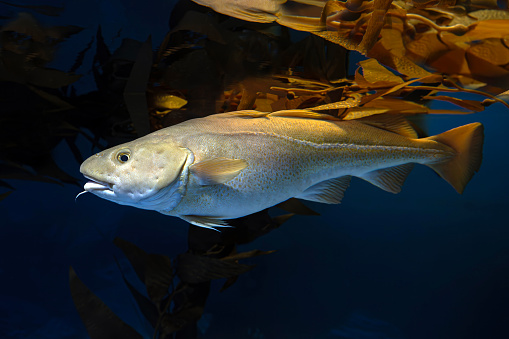Politics
Urgent Call to Protect Cod Stocks in New England Waters

The decline of cod stocks in New England waters has prompted renewed calls for effective conservation measures. As early as 1638, settlers in Plymouth, Massachusetts, recognized diminishing fish populations, particularly cod and striped bass, due to human activities. This understanding highlighted the detrimental impact of land use on marine life, such as damming streams and draining wetlands.
By the early 17th century, the situation for cod had worsened significantly. The fish, once abundant around the coast of Britain, had nearly vanished by 1615, leading English fishermen to embark on long voyages to Newfoundland’s Grand Banks. The Pilgrims, aware of the decline in cod populations in their new home, witnessed similar trends in Massachusetts Bay. They understood that the issue was not solely overfishing but rather the harmful practices affecting marine ecosystems.
Legislation passed in 1638 attempted to protect these vital fish stocks by banning the use of cod and striped bass for fertilization. Despite this effort, it would take nearly three centuries for another significant law, the Magnuson-Stevens Fisheries Conservation and Management Act, to be enacted in 1976. This legislation was largely influenced by Cold War politics and aimed more at national pride than the ecological realities facing cod.
The act expanded American waters to 200 miles and established regional fishery councils tasked with managing fish stocks. These councils, which include representatives from the government and the fishing industry, have had mixed success. While some fish stocks, such as haddock and monkfish, have been rebuilt since the turn of the millennium, the two primary cod stocks in New England—the Gulf of Maine and Georges Bank—continue to struggle.
Recent developments have shifted the focus from maximizing profits to sustaining fish populations. A pivotal moment came when the Ocean River Institute, led by environmentalist Dr. Rob Moir, successfully sued the government for an ecosystem-based approach to catch limits for herring and shad. This change acknowledges the critical role these forage fish play in the food chain and aims to restore balance to the marine ecosystem.
Despite these efforts, fishing activity within the exclusive economic zone remains insufficient compared to the industrial fishing fleets of Russia and Japan. The consequences of overfishing and habitat destruction have left many fish stocks vulnerable, leading to concerns about the future of marine life in these waters.
As the fishing community faces increasing challenges, the focus must shift back to land-based practices impacting marine environments. Dr. Moir emphasizes the need for a collective reevaluation of our approach to cod and the broader ecosystem. The lessons from 1638 serve as a reminder of the responsibility we have to protect our ocean resources.
For further information about conservation efforts and the work of the Ocean River Institute, interested individuals can visit www.oceanriver.org. As the urgency to safeguard marine life grows, it is crucial to consider how our actions today will shape the future of cod and other vital species in our oceans.
-

 Lifestyle3 months ago
Lifestyle3 months agoLibraries Challenge Rising E-Book Costs Amid Growing Demand
-

 Sports3 months ago
Sports3 months agoTyreek Hill Responds to Tua Tagovailoa’s Comments on Team Dynamics
-

 Sports3 months ago
Sports3 months agoLiverpool Secures Agreement to Sign Young Striker Will Wright
-

 Lifestyle3 months ago
Lifestyle3 months agoSave Your Split Tomatoes: Expert Tips for Gardeners
-

 Lifestyle3 months ago
Lifestyle3 months agoPrincess Beatrice’s Daughter Athena Joins Siblings at London Parade
-

 World3 months ago
World3 months agoWinter Storms Lash New South Wales with Snow, Flood Risks
-

 Science4 months ago
Science4 months agoTrump Administration Moves to Repeal Key Climate Regulation
-

 Science2 months ago
Science2 months agoSan Francisco Hosts Unique Contest to Identify “Performative Males”
-

 Business3 months ago
Business3 months agoSoFi Technologies Shares Slip 2% Following Insider Stock Sale
-

 Science4 months ago
Science4 months agoNew Tool Reveals Link Between Horse Coat Condition and Parasites
-

 Sports3 months ago
Sports3 months agoElon Musk Sculpture Travels From Utah to Yosemite National Park
-

 Science4 months ago
Science4 months agoNew Study Confirms Humans Transported Stonehenge Bluestones









